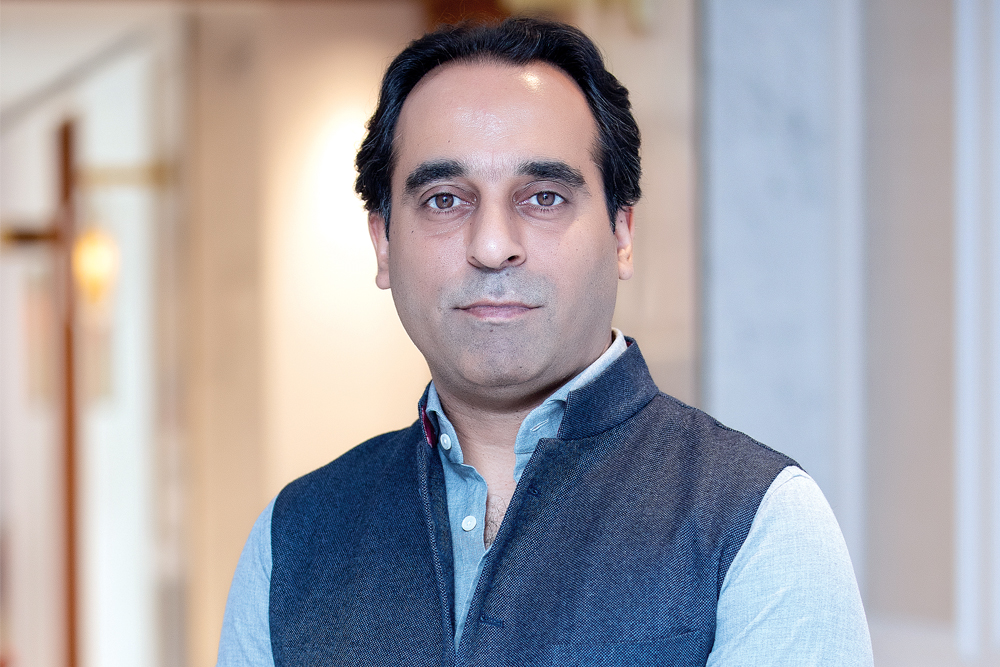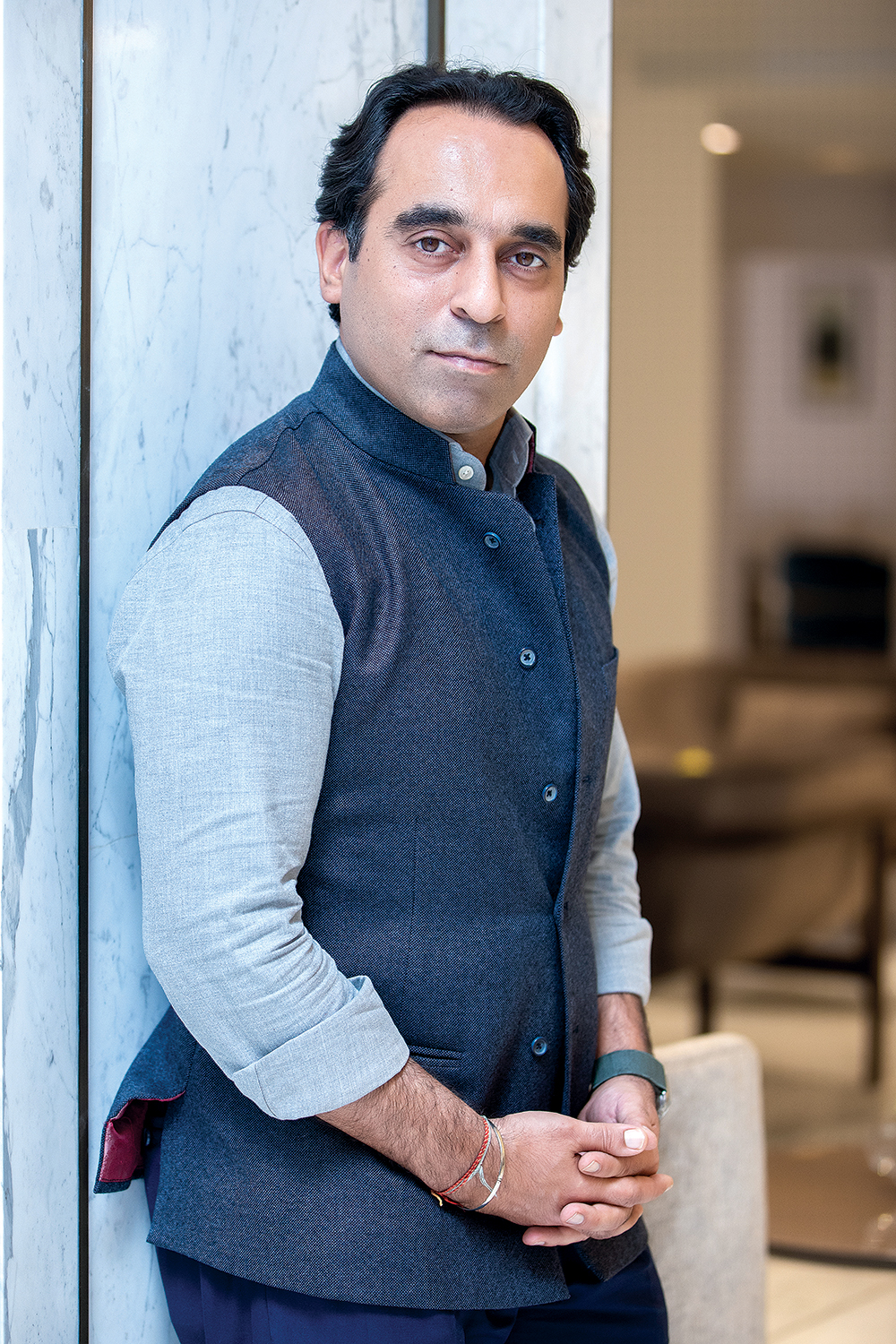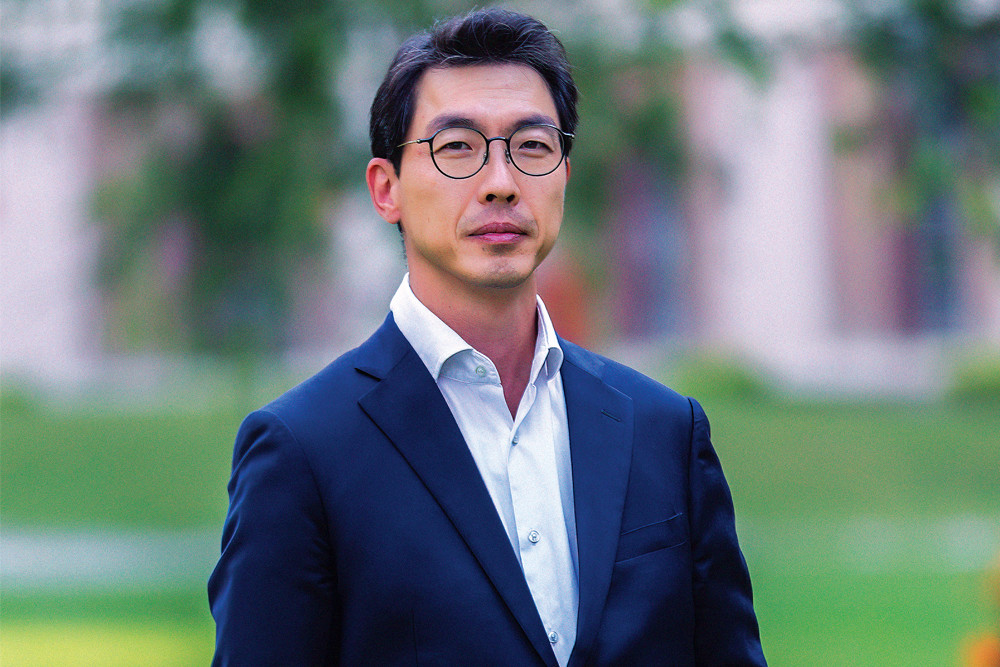
Jaivir Singh
Vice Chairman, PricewaterhouseCoopers (PwC) India Foundation
Jaivir Singh, Vice Chairman of PricewaterhouseCoopers (PwC) India Foundation, spends most of his time running the foundation in South Asia for PwC India Foundation and also drives the Global Office for Humanitarian Affairs for PwC International which concentrates on protracted humanitarian crisis globally. “We work in places like Afghanistan, Syria, Turkey and Bangladesh to name just a few countries. We have done a lot of work in Nepal too after the earthquake and now we are engaged with the Confederation of Nepalese Industries on a climate associated report which we will be launching soon,” he shares. Singh was recently in Kathmandu for the Women’s Leadership Summit 2023 which was organised by the Women Leadership Forum of the Confederation of Nepalese Industries (CNI) as one of the keynote speakers of the event. Business 360 had the opportunity to speak to Singh about the work that PricewaterhouseCoopers (PwC) India Foundation is involved in and his views on subjects like corporate social responsibility (CSR) and social entrepreneurship. Excerpts from a conversation with Singh:What are the core areas that PricewaterhouseCoopers (PwC) India Foundation focuses on?
The PwC India foundation which is primarily for India and South Asia concentrates on development but we also do a lot of humanitarian work. Some of our priority areas are around health and nutrition. The other priority areas that we focus on are education and livelihoods. We have also incubated the School for Social Entrepreneurs which now has a programme in Nepal as well and we are doing this in collaboration with Nabil Bank. So, I would say our engagements are a combination of development and humanitarian work. If you look at most of the natural tragedies that have occurred on the Indian sub-continent or in Nepal for that matter, we have responded to most of them over the last 10 years.CSR has become a buzzword for many businesses in recent years but most often, we hear people say that CSR activities often border on marketing. How do you view this?
I think CSR has come around at a point when everybody started thinking of the idea that the private sector should be more involved in the community. My belief is that private business in itself is also essentially for servicing the society. Over the last 150 years or so most of the concentration was around shareholder value, however in the last 10 to 15 years a lot more has been talked about stakeholder value and when I take that concept of stakeholder value within that societal investment, it is very much a part of what the private sector needs to do. So, CSR is just a manifestation of the idea that the private sector needs to be more involved with societal problems and I think depending on which part of the world you are in, it gets called different things. It might be CSR in this part of the world but considering all that has happened with sustainability and climate over the last four-five years in a lot of the western world for example it now gets known as corporate sustainability because under the sustainability umbrella many more things come in as well. While talking about CSR activities bordering on marketing, at one level there will be elements and I emphasise, there will always be elements where when you are using a product or service which is essentially coming from the private sector it can also be used for doing good for perhaps people who might not even be that particular company’s customers. For instance, where we are sitting at the moment, the type of customer who comes to a hotel of this kind would be a high-income customer but at the same time if you think about it, then a lot of the people who work here, or a lot of the people who would be external service providers would perhaps not come from the same income group but they are very much stakeholders in the success of this hotel’s operation. To me, I think the broader view that the private sector needs to have in terms of uplifting those that are more vulnerable than others that we find in this ecosystem is CSR. That is a responsibility that the private sector needs to take on. And with the debate that is now taking place around climate, the private sector is now finding that we need to be far more engaged in societal upliftment than we have been historically.You have often spoken about there being a deep linkage between a country’s economic growth and social well-being. Could you elaborate?
The measure of our economic growth is the gross domestic product (GDP) growth. So, the typical measures of the movement of the economy are GDP growth and per capita income. Those are the real tools, the drivers but I think one of the ideas we need to concentrate on especially when it comes to ‘at risk’ communities is human development. We need to look at the human indicators too. How do you take conventional economic growth which is measured in a particular way - that are the GDP and per capita - and relate it to human development parameters which are the most essential things like basic access to services like access to health, education, livelihood and basic services that are supposed to be provided to everyone in society. I think we need to broaden our view when it comes to the way we calculate economic development because sometimes the measure by which we do it does not capture the needs or the outputs that are being created by the unorganised sector. And we have a very large unorganised sector in India but then that’s not true just for India. It is true for Nepal, Bangladesh, it is true for a lot of the emerging world. So, I think we need to change the metric to some extent in terms of the way we calculate, how we capture that data, and how we use that data.
How do you differentiate between philanthropy and CSR?
Depending on who you ask this question, you might get somewhat different answers but if you ask me philanthropy is somehow more non-engaged giving. That is large individuals or institutions which have the ability to give money but they don’t necessarily spend a lot of time in terms of engaging with the issue. In the case of CSR or at least in the PwC context, what we are trying to do differently is that we will continue to give resources of the monetary kind but we get our people much more involved in the work. So, the giving manifests just not in money but also in skills and that is very important to us. If I think about the type of problems in society the world faces today what we need is smart, committed and passionate people to be giving their time too and not just money because money will come but the correct usage of that money in the most efficient way is something that is typically attributed to the private sector. How do we bring some of that efficiency, some of that access, some of those skills and redirect them to some extent to society for its development? I think that is the fundamental difference. So, on the CSR side for a company like ours, we look at what our asset is. Our asset is our people and what do our people have, they have skills. How do we use those skills to be able to address some of the most pressing challenges of humanity? For us, that is CSR.How can a country like Nepal embark on the path towards sustainable development?
There are many layers to that. For example, the summit we are all at, at the moment, is about the importance of women when it comes to not just political representation or economic representation, but also the change in cultural bias. So much of what we have talked about in the conference also revolves around that. Nepal has some great opportunities. The country has very resilient and entrepreneurial people, but the policies need to align with that as well. I think policies need to give direction and not just direction, it needs to go hand in hand in terms of looking into Nepal’s most fundamental challenges, and to me a lot of those challenges today are at the grassroots. So how do you better last mile delivery systems to be able to get some of the most essential things that people need today and tomorrow? For me that would be the starting point. I combine that with the challenges that the globe faces today. You probably know that Nepal is one of the most impacted nations from a climate change standpoint of view and this is not something that is far away like 50 or 100 years away. It is at our doorstep today and the impacts of that are going to be quite bad if we don’t start taking actions immediately. We are actually working with CNI to come up with a climate adaptation project in Nepal where we are working with the private sector within CNI to be able to create some examples of pilots that are going to be suggestions for policies, civil society, private sector, and for the non-profit sector. So collaborative models which bring everybody together are vital. We need to bring in different sets of mental models, different sets of skills, different resources and different networks and then be able to find common areas of interest where everybody brings what they are good at to the table because none of us can do this independently. We need the policy level of the government and its support. We also need the private sector to deliver the efficiency and skills within it, and we need civil society and not-for-profits. And of course, it needs to be gender inclusive. If women are not a part of that development, then development is going to be very lopsided. We need to bring all that together. There have to be collaborative approaches which bring best in class institutions and individuals to create cohesive models which allow for us to look at the future in a far more collective way than perhaps working in an individual manner which is not the most efficient way of looking at development in the future.Over the past few years, conversations are seen shifting from CSR to ESG. What exactly is the difference between the two?
ESG is about environment, social and governance. It is an encouragement in some ways for the private sector to be able to look at how it needs to change its own operations as it thinks about societal, climate and policy level challenges for the future. So, ESG is something that actually is not necessarily always associated with CSR. CSR is when an institution is giving outside. ESG is an idea that you need to embed within your organisation. To give you an example, we at PwC globally will be net zero in carbon by 2030. What does that require for us to do? It requires for us to look at our carbon emissions in a very different way. It requires us to look at the way we use electricity from the grid in a very different way. So, to move towards a carbon net zero future we have to change our business operations in some of the ways we operate. As consultants, most of our carbon is when we fly; we have to fly to clients, we have to fly to get business, but the world today has become smaller as we have Zoom and Google, and all of these things which allow you to interact remotely. But there is a cultural element there as well. There will be a transition phase but essentially the difference between the two for me is the CSR side looks outward towards communities, ‘at risk’ communities which might not be part of your stakeholder group whereas ESG is far more about being able to change your own business operations and be prepared for the future from climate perspective.Are there any specific ways that PwC assesses the programmes and regions that you want to be involved in?
Like I said earlier, ours is a skill-based institution. I have the great fortune that within the PwC India team we have a very large social sector practice. And in this social sector practice, we have people who are experts in all types of fields and one of them is the ability to do need assessments, and then to be able to do oversight mechanisms whilst the project is going on and at the end of it an outcome assessment. These skills are already embedded within our own system. So, I have the fortune to lean on those abilities, that expertise which typically people would go on and pay for because that is what PwC would go and sell in the market as well.There has always been debate on what differentiates an entrepreneur from a social entrepreneur. How do you define it?
I have a different view on that. Social enterprise got coined as two words fairly recently and have been done by some of our Western friends. When I think of it culturally and take Nepal, India, Bangladesh, Pakistan - all the countries in the east, to me, for example if you establish a small entrepreneurial set-up where you are hiring 5-10 people who otherwise don’t have a livelihood, the fact that you are generating income for those who would not have an income, there is a social element to that; even though fundamentally you are an entrepreneur doing it for profit. I think where the two ideas meet and are somewhat different is even a social entrepreneur needs to make profit. Making profit is not a bad thing. But the question you always ask yourself is how much profit is good because if you are using profit to be able to uplift the lives of others and to expand your entrepreneurial idea because you can go out and hire more people and give them more livelihood then pretty much everybody is a social entrepreneur. So, I think it depends on where you are and how that gets defined. For me, as I think about Nepal and India, if you are working at the grassroots level and you have an entrepreneurial idea which is addressing a social problem of any kind, then to me that is defined as social entrepreneur though that might not be the same definition is some parts of the West.
Published Date: April 28, 2023, 12:00 am
Post Comment
E-Magazine

Click Here To Read Full Issue
RELATED Face 2 Face


.jpg)
.jpg)
.jpg)